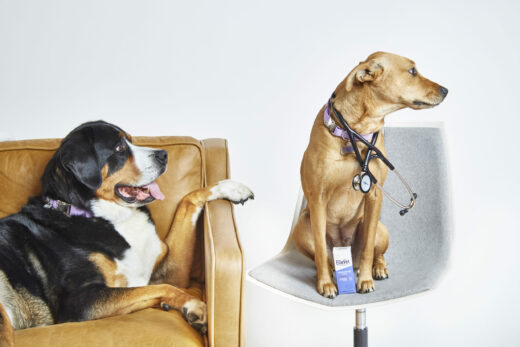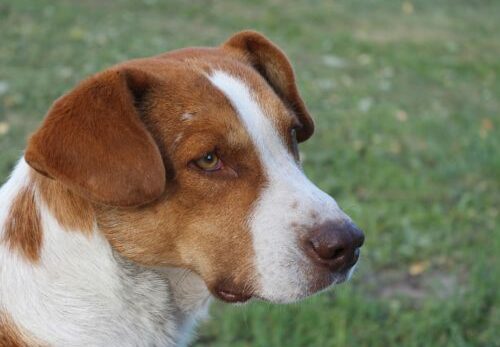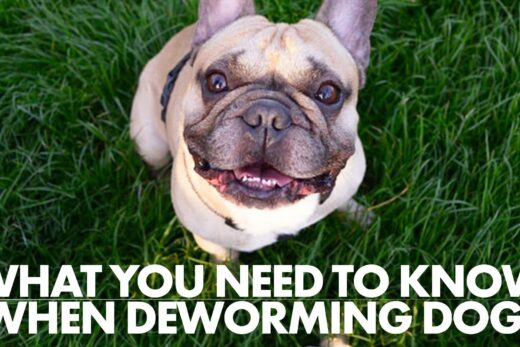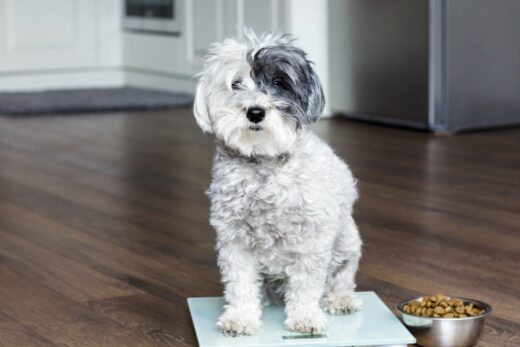One of the best parts about having the honor of being a dog owner is watching your puppy play and experiencing the outdoors with your doggy. Hikes are more fun when your dog comes along, and puppies can even take walks in the pouring rain an exciting adventure. Dogs are not for the homebody, for they require a lot of outdoor time, physical exercise, and stimulating activities. Dog owners know just how active canines can be.
So when your dog falls ill with some sort of health condition or physical impairment, the change in behavior can be quite a hard adjustment. In this blog post, our focus is on patellar luxation and how it affects dogs in particular. We will calm your worries by first discussing patellar luxation for dogs in great detail, and then segue into a conversation about how to resolve the adverse side effects of a luxating patella.
Luxating Patellas: What is Patellar Luxation?
As soon as pet owners realize that something is wrong with their pet, they tend to immediately call the vet, or in the most serious of cases, they rush their pets to the emergency veterinarian’s office. If you have ever found yourself being informed that your dog has a case of patellar luxation, you know how daunting the term can sound.
If you’ve never run into the phrase before, you might be a bit perplexed as to what a diagnosis of patellar luxation means. In order to understand what patellar luxation is, let’s break the terminology down into its two parts. First, how about we tackle the word patellar. What is that?
Well, patellar is the adjective form of patella, which refers to the kneecap. Logically, dogs have four kneecaps — one for each leg. Patellas in dogs connect the upper thigh muscle to the tibia, which is a muscle near the calf region of the lower leg. The patella sits at the front of the knee, while the patellar ligament is situated between the tibia and the upper thigh muscle. The patellar ligament essentially acts as a connector between the two.
Now, let’s move onto luxation. What could that possibly be? Luxation is another word for dislocation. When a body part moves in an unusual way and a joint is rotated out of its socket in the process, luxation has occurred. It can happen as a result of accidents or serious injuries, but sometimes, your dog might just move awkwardly and cause dislocation to occur.
Let’s say your pupper jumped off the couch and onto hardwood flooring. Your little guy wasn’t acting recklessly or playing too hard. He just happened to perform an action that his joints aren’t used to, thereby inflicting patellar luxation.
So, in summary, patellar luxation is the dislocation of a kneecap. Luxating patellas are very serious situations. Not only is a dislocated kneecap incredibly painful, but it can result in swelling and other joint problems if the condition is not address0ed immediately.
How Does Dog Patellar Luxation Affect Canines?
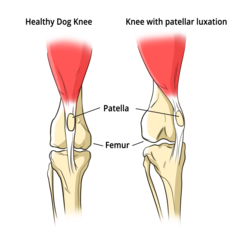
Patellar luxation reduces the mobility of dogs. As you can imagine, having a dislocated kneecap is a very painful predicament in which you could ever find yourself. By putting it into perspective, you can understand the implications of patellar luxation for your dog.
If you were incapacitated on account of your kneecap popping out of its natural position, you would have trouble accomplishing your daily tasks. From walking more than two steps and using the bathroom, to getting out of bed and making it to the kitchen for food, your day-to-day reality would be upturned and completely different. As a result, you would suddenly require assistance from a caretaker at nearly all times of the day.
The same goes for dogs with dislocated kneecaps. Everything becomes so much more difficult when patellar luxation for dogs is involved. Nearly immediately after the dislocation of a dog’s kneecap takes place, the symptoms take over. Some dogs manage the pain better than others, and in these cases, they will try to walk anyway. At best, your pup will limp and obviously favor the non-dislocated side of the body over the other.

